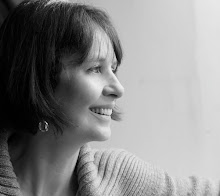Our last day in China! Whilst we are excited about seeing everyone
again, the prospect of the long winter months is not enticing at the
moment. We are eating pancakes on the terrace of the Liquing Hotel in
the mountain village of Ping'an. A pig is squealing down below as it
becomes someones dinner for tonight, and we are basking in some rare
rays as today we have a blue sky. I want to soak them into my skin and
bring them home to England.
This is the home of the Zhuang and Yeow minority groups. The hills are
covered in rice terraces created 700 years ago and still today provide
the daily food for the 170 homes in the village. They grow mainly rice
but also ginger, sweet potatoes, chillies, pumpkin, and other veg and
also keep a few pigs and chickens. They plough with buffalo though the
hills are so steep some of the terraces are only one or two rice rows
wide.
We have arrived just after the rice harvest so the terraces are
mainly brown and stubbly and the water has been drained. It is
nonetheless stunningly beautiful. Our trek yesterday - about 15k -
took us through villages and terraced mountains on narrow stony tracks
that people must have walked for hundreds of years. The sense of peace
and stability is tangible.
We realise the tourists are a very important source of income to the
people - probably the only income in terms of money as they have
sufficient land to grow their own food but not enough to sell. They
work as hotel operators, guides, cooks etc and once a week these tiny
women take turns at carrying our heavy bags in big baskets on their
backs up the steep mountain tracks to the village. There is no
vehicular access anywhere near. They even offer a ride in a sedan
chair for those unable to make the walk. This is a bamboo chair
CARRIED on the shoulders of two or four men. Rather undignified and
certainly damaging to the pride of any self respecting backpacker!
Our lovely guide from yesterday, Dian, gave some insight into family
life here. While most of China has the one child policy, in rural
areas a woman having a girl first can have a second child in the hopes
of having a boy. They can marry after 22 yrs and have their chid/ren
after 24. There is a taboo against becoming an 'old' mother after 30.
She told us she has a little girl, looked after by her grandmother -
most young children we see are being cared for by grand or great
grandparents as their parents are working. She was happy to become a
guide 4 months ago as it means she can earn money and also improve her
English - a big goal for many Chinese.
Sent from my iPhone

